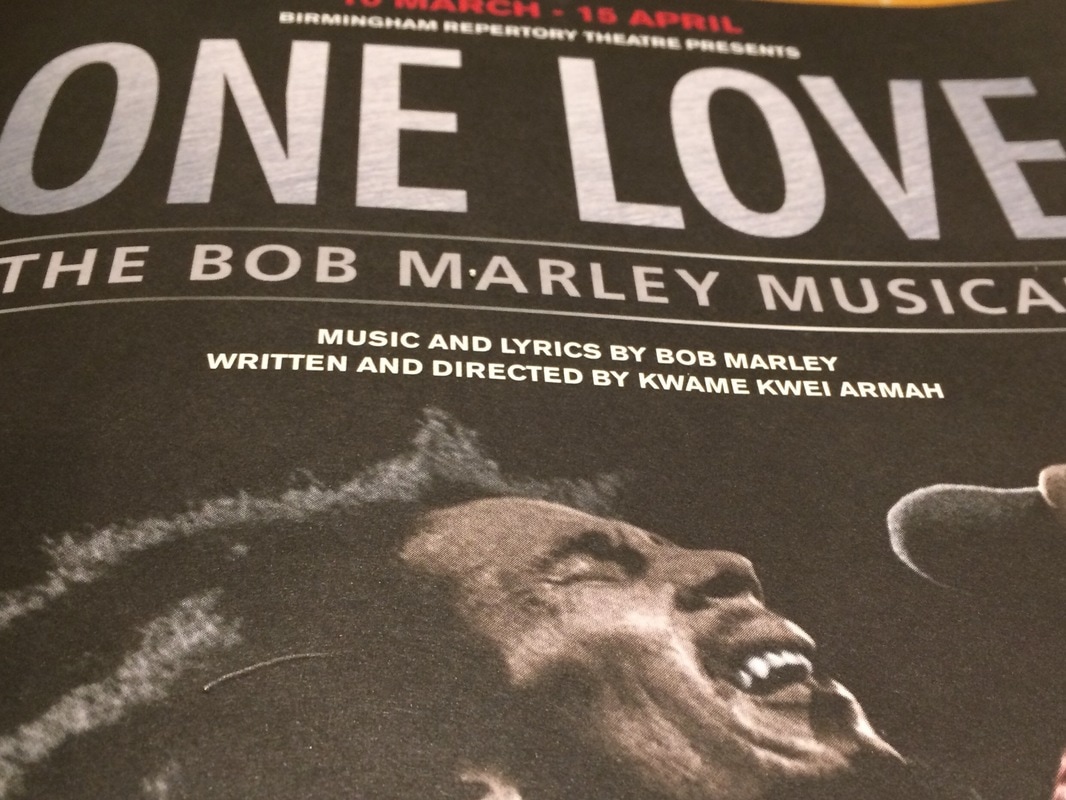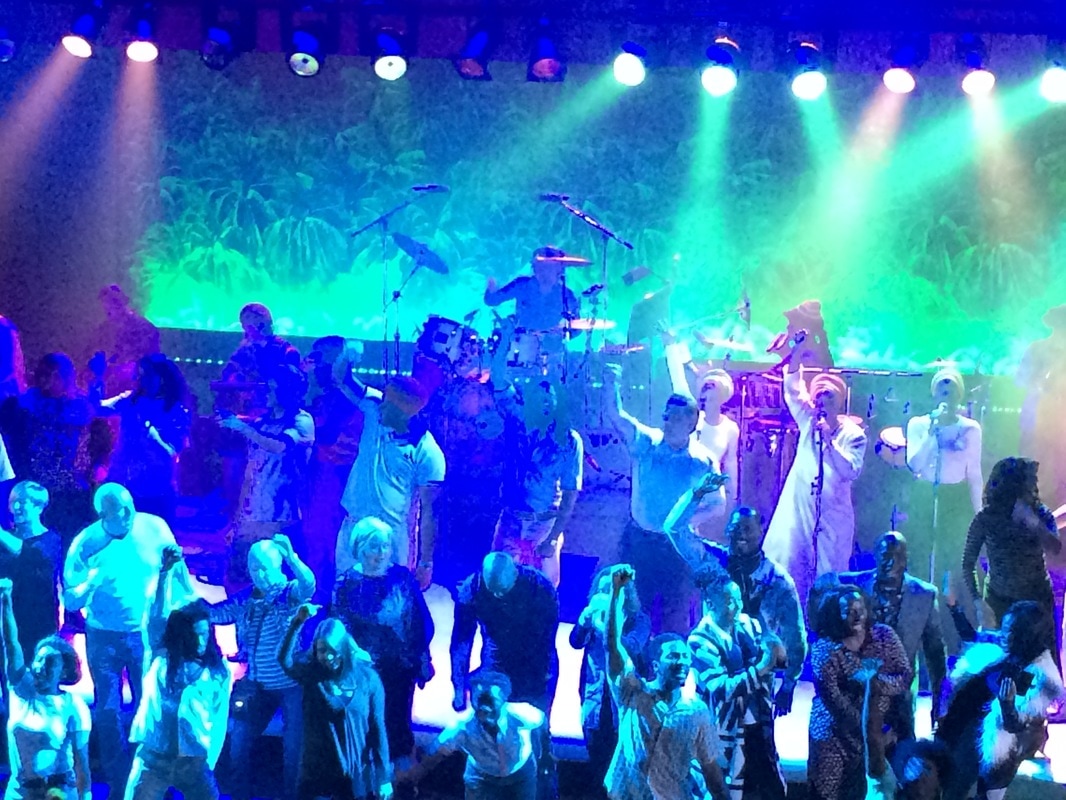| Easy now, through the reverse telescope of hindsight, to see how obvious it all was - create a dramatic timeline around the life and times of a global superstar, sprinkle liberally with some of his best known tunes and hire a cast full of soulful energy to interpret the director's wishes. Sit back and wait for the glowing reviews. Simples. Yet we've all witnessed "obvious" hits that have missed; Birmingham Rep itself registered a conspicuous flop a few years back with an ambitious but flawed riff on homegrown heroes UB40. So it's a tribute to this joyous production that just over week after the first public performance, One Love already looks like the finished product - a show fit to take on the West End, Broadway and the world. Marley's wonderful songbook is obviously integral - right from the early bars of Simmer Down where we see the as yet unreconstructed Rude Boy paying his dues in downtown Jamaica, audience members are doing the closest thing to skanking that the Rep's comfy seats will allow. Later, after Marley has converted to Rastafarianism and had his head turned by becoming a best selling international artist, there's a spine-tingling play off between No Woman No Cry sung by the astonishing Mitchell Brunnings in the lead role and Wait in Vain, soulfully delivered by Alexia Khadime as Bob's long-suffering wife Rita. Brunnings might be slightly shorter and squatter than we expect the leading man to be, but his re-creation of Marley's gravel-flecked delivery is spot on – so much so that at first you find yourself checking to see if he's miming - and by the finale he not only has the crowd on its feet but several of them up on stage in a state of joyous boogaloo. In and around the hits, writer/director Kwame Kwei Armah deftly steers us through the political turmoil of post-independence Jamaica, which in the mid-70's was dominated by the socialist Malcolm Manley and his CIA backed rival Edward Seaga. Their mutual hostility was reflected in riots and vicious gun fights, with the Marley clan themselves being targeted for assassination. Marley survives a shooting at his Hope Road HQ and relocates to London in 1976, in the year of peak Punk where he's adopted by a generation of white youths who find common cause with his revolutionary zeal – if not the religious temperament that later takes him to the Rastaman's spiritual homeland Ethiopia. The shifts – temporal and geographical – are smoothed over thanks to the clever of use archive video by designer Ultz. One Love doesn't shy away from Marley's (occasional) bullying and (frequent) philandering but also rightly celebrates his phenomenal achievement in becoming the first “Third World Superstar”, capable of inspiring white, middle class record buyers in their safe European homes as well the vast African disapora. This is a night out that will fill you with Dread – but only in a good way. One Love appears at Birmingham Rep until 15 April 2017 |
|
0 Comments
|
AuthorRadio, TV and podcasts Archives
September 2022
Categories |





 RSS Feed
RSS Feed
